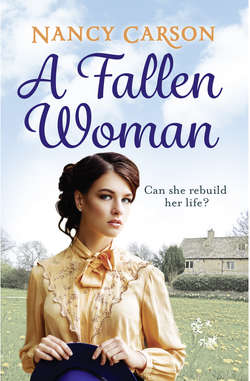Читать книгу A Fallen Woman - Nancy Carson - Страница 16
Chapter 10
ОглавлениеWhen Clarence Froggatt was a child, his father realised that his only son was blessed with an unusual combination of talents, namely an aptitude for mathematics and a fondness for drawing and designing things. As far as Dr Froggatt was concerned, these were not the relevant ingredients for a career as a physician like himself, but were entirely applicable for life as an architect. Thus, he encouraged his son to think along those lines from an early age. The lad should strive for it he believed, simply because he saw that it was attainable. By the time Clarence had wed Harriet Meese, he had passed all his examinations and was a fully qualified architect.
Dr Froggatt had seen to it that his son received as good an education as it was possible to get, without it actually costing him good money on private schooling, for thrift was no stranger to generations of Froggatts. Yet parsimonious as his father had been, Nature had been decidedly lavish with the gifts she bestowed on Clarence. Besides his mathematical and artistic abilities, he was blessed with a handsome face and a fine physique, hinting at good health and greater than average physical strength. The only aspect of his looks that could have been improved was the occasional aloofness of his facial expression and a tendency to appear more serious than he actually was. Some people interpreted this as a sign of being morose, unduly solemn, miserable, lacking a sense of humour, some even as haughty. Yet when he actually smiled, these perceived characteristics disappeared and his face lit up.
Clarence was also a realist, especially where women were concerned. His looks and demeanour had enticed many a lovely girl to fall for him, and he had taken advantage of what was on offer when the opportunities arose; his delicious liaison with Kate Stokes was still seldom far from his mind. He missed some aspects of Kate even now; her looks, her playfulness, her teasing, despite his affection for his bride.
It was after he and Harriet had returned from honeymoon in Llandudno that they had called at the home in Holly Hall of his mother and father, who received them cordially in their parlour.
‘I have some news for you, Clarence, my boy, which I’d prefer to break to you privately.’ Dr Froggatt spoke solemnly, which put the happy couple on edge, as if some unwelcome announcement was about to shatter their contentment.
Harriet glanced at Clarence with a look that questioned why she should not be party to the conversation, since they were now husband and wife. With a single glance and nod of his handsome head, however, she understood. He would tell all afterwards in any case.
Dr Froggatt summoned the maid and asked her to provide tea for the ladies, and to convey a bottle of whisky and two glasses to him and Clarence in the surgery.
As Mrs Froggatt and Harriet remained in the small parlour with its chintz curtains and ageing mid-nineteenth century furniture, Clarence followed his father into the surgery, where Dr Froggatt normally dealt with his patients. He closed the solid oak door behind them. Shelves of medical books, bottles, jars and other paraphernalia lined two walls of the surgery. A mahogany desk with a leather-bound top spanned the bay window to enjoy the benefit of natural light. It was strewn with papers and the assorted trappings and instruments of a general practitioner. The doctor took the chair that also lived in the bay behind the desk.
The maid tapped on the door and delivered the whisky and glasses, which she placed deferentially before him. He took the bottle, opened the cork and waved her away unsmiling. As she shut the door behind her, he began to pour.
‘What’s this mysterious news then, Father?’ Clarence asked as he drew up a chair at the other side of the desk facing the window. He took the glass his father proffered, sipped the strong amber liquid and crossed his legs.
‘Your Uncle Septimus…’
‘What about him?’
‘He passed away while you were on your honeymoon. Quite suddenly.’
‘Good gracious!’ Clarence gasped, uncrossing his legs. He leaned forward in the chair in anticipation of hearing some detail. ‘Well, I’m sorry to hear it, Father.’
‘I didn’t think it appropriate to interrupt your conjugal frolics with the sad news.’ He smiled knowingly. ‘Nothing you could have done anyway.’
‘So what was the cause of death?’ Clarence enquired at once, not wishing to dwell on the subject of conjugal frolics.
‘Blood clot – on the brain, or so I’m led to believe. As I’m not his personal physician, I can only go on what his own quack in Wolverhampton reported. Funeral’s on Monday. Eleven o’clock. St Peter’s church.’
